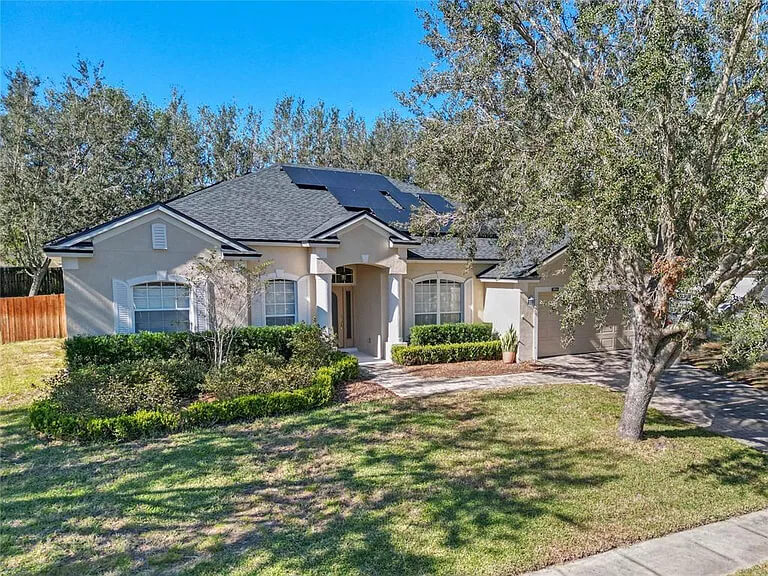For many home buyers, the term short sale can bring up questions, especially when it comes to funding the purchase. So, the big question is: can you finance a short sale? The straightforward answer is yes, you typically can, often using conventional, FHA, VA, or even portfolio loans.
A short sale occurs when a mortgage lender agrees to let a homeowner facing financial hardship sell their property for less than the total mortgage balance owed because the lender, not the seller, must approve the final price and buyer. While the path to financing might have a few extra turns, including an extended vetting period by the seller’s lender (often an additional 6-12 weeks on top of a normal escrow), it’s a viable option for informed buyers.
How Financing a Short Sale Property Works
Securing financing for a short sale property starts much like any other home purchase: with your mortgage pre-approval. In fact, getting a rock-solid, fully verified pre-approval (where your income, credit, and assets have been checked by the lender) is a critical first step. Most services for the seller’s lender will give far more weight to this than a generic pre-qualification letter, as it shows you are a serious and capable buyer for the short sale purchase.
Pro tip: Consider attaching recent bank statements and a mortgage credit pull summary (with your loan officer’s guidance) to your offer packet for enhanced credibility.
Your own mortgage lender will assess your financial standing, including your credit report, income, and debt-to-income ratio, just as they would for a traditional sale. Simultaneously, the short-sale property itself will need to be appraised to determine its current market value.
A key characteristic of short sales is that they are almost always sold as is. This “as-is” condition means the seller will not be making any repairs, and the seller’s lender won’t typically allow credits for issues like a leaky roof or dated wiring. You’ll need to budget for any necessary repairs yourself.
- It’s wise to build a contingency fund, perhaps 3-5% of the purchase price, for these potential surprises.
- A thorough home inspection is absolutely vital to understand the property’s true condition before you commit. Depending on the property and inspection findings, you might also consider specialized checks for issues like mold, pests (e.g., termites), or structural concerns.
Special Consideration: Waiting Periods After Your Own Previous Short Sale
If you, as a buyer, have had a short sale on your own record in the past, be aware that lenders have minimum waiting periods before you can qualify for a new loan. These vary by loan type (measured from the closing date of your previous short sale to the disbursement date of your new loan):
-
Conventional (Fannie Mae/Freddie Mac)Typically 4 years. This can be reduced to 2 years with documented extenuating circumstances (like job loss or medical crisis) and usually requires a loan-to-value (LTV) ratio of 90% or less.
-
FHAGenerally 3 years if your prior loan was in default leading to the short sale. Case-by-case exceptions may apply for documented “economic events” beyond your control.
-
VATypically 2 years. You must also fully restore your VA loan entitlement.
-
Non-QM / Portfolio LoansWaiting periods can vary widely, from 0 to 24 months. These loans might come with higher interest rates or require a larger down payment (often 20% or more).
Navigating the Short Sale Process for Financing Approval
The short sale process involves more than just you and the seller; the seller’s mortgage lender has the final say on approving the sale at the offered purchase price. This is why every term, including your financing, gets extra scrutiny.
The seller must prove financial hardship to their lender, often via a hardship letter and detailed financial statements. This review takes time, making the short sale transaction a lengthy process. Your offer is contingent on both your financing and the seller’s lender approving the short sale.
When making your offer:
-
Offer RealisticallyListing agents usually price a short sale near 90–95% of its current market value to satisfy the bank’s appraisal requirements. While the National Association of REALTORS® (NAR) data has shown that average short-sale discounts can be around 17% below comparable non-distressed homes, bids that are ridiculously low are likely to be ignored, further extending the timeline.
-
Strengthen with Earnest MoneyConsider making a sizable earnest money deposit, often 2–3% of the purchase price. This signals your commitment and can make your offer more attractive. Ensure the language in your purchase agreement, as advised by your agent, keeps these funds refundable if the seller’s bank ultimately declines the short sale.
An experienced real estate agent specializing in short sales is invaluable. They can help navigate complexities like multiple lienholders, Homeowners Association (HOA) arrears, or negotiating potential deficiency-judgment waivers for the seller (which can impact the seller’s cooperation). With NAR data indicating that only about 32% of recent home purchases were all-cash, financed buyers need every advantage to compete effectively. A title search will also be required by your lender to ensure there are no other liens that could complicate the home sale.
Key Differences: Short Sale Financing vs. Traditional Home Purchase

While your experience with your own mortgage lender might feel similar to any other home loan application, there are distinct differences when financing a short sale property compared to a traditional home purchase:
- Timeline: This is the most significant difference. After your signed contract reaches the seller’s mortgage lender, their internal approval process averages an additional 6–12 weeks before your standard escrow and loan underwriting can even begin. It’s advisable to lock your interest rate for at least 90 days if possible and maintain flexibility with your move-in dates.
- Lender Approval Layers: You need approval from your mortgage lender, and the seller needs approval from theirs. This adds a layer of uncertainty and time.
- “As-Is” Condition: More prevalent and strictly adhered to in short sales, directly impacting your out-of-pocket repair costs and potentially influencing property appraisal for financing.
Short Sales vs. Traditional vs. Foreclosure at a Glance
| Factor | Short Sale | Traditional Sale | Foreclosure Auction |
|---|---|---|---|
| Typical Discount | 5–17% below market (approx.) | List-price driven | Highest volatility |
| Property Condition | Sold “as-is” | Negotiable repairs | Unknown, no access typically |
| Buyer Timeline | 60–120+ days (due to seller’s lender review) | 30–45 days | 10 days or less (often cash) |
| Financing Allowed | Yes (if buyer & property qualify) | Yes | Rarely |
(Note: Seller’s credit impact is significant in both short sales and foreclosures, but less directly relevant to the buyer’s financing question.)
Financing a Short Sale is Achievable
So, can you finance a short sale? Absolutely. While it requires significant patience, thorough due diligence, and careful navigation of the short sale process, buying a short-sale home can be a way to purchase property at a reduced price.
The keys to success are robust pre-approval, realistic expectations regarding timelines and property conditions, and a strong professional team. Work closely with your mortgage lender from the outset and enlist the help of an experienced real estate agent who understands the intricacies of short sales. With the right approach, you can navigate the complexities and achieve your goal of homeownership through a short sale.
Helpful Resources
Finding Licensed Real Estate Professionals
-
National Association of REALTORS® (NAR):NAR provides a “Find a Member®” directory, which can help locate REALTORS® who are members of the association and adhere to its Code of Ethics. They also offer listings of state and local REALTOR® associations, which may have their own member directories.
-
State/Provincial Licensing Bodies:Many state or provincial real estate licensing authorities offer online tools to verify a real estate professional’s license status. For example, the BCFSA (British Columbia Financial Services Authority) has an online register to find licensed real estate professionals and brokerages in British Columbia, including their contact details, license category, and any disciplinary history.
Finding Licensed Mortgage Professionals (NMLS Database)
-
NMLS Consumer Access:The Nationwide Multistate Licensing System (NMLS) offers a public portal called NMLS Consumer Access. This is a free service for consumers to confirm that the mortgage company or mortgage loan originator (MLO) they wish to work with is licensed in their state. You can search by name, company, or NMLS number.
- The SAFE Act requires all state-licensed and federally registered mortgage loan originators to be registered with NMLS.
- State banking or financial protection departments often direct consumers to NMLS Consumer Access to verify licenses. For example, the Georgia Department of Banking and Finance, the California Department of Financial Protection and Innovation (DFPI), and the Connecticut Department of Banking all refer to this portal.
-
State/Provincial Regulatory Bodies for Mortgage Brokers:In addition to the NMLS, some state or provincial bodies maintain their own lists or search tools. For instance, BCFSA in British Columbia provides a list of registered mortgage brokers and submortgage brokers.
-
Lender Directories:Some online platforms, like Zillow, offer mortgage lender directories where you can search for licensed lenders and mortgage brokers by name, bank, or location (using a ZIP code). These directories often include customer reviews.
While a short sale can offer a chance to buy a home at a potentially reduced price, there are disadvantages. The primary drawback is often the lengthy process, as approvals can take months. Properties are almost universally sold as is, meaning you, the buyer, will likely be responsible for all repair costs, which can be substantial. There’s also more uncertainty involved in these complicated transactions; the seller’s lender might reject the offer even after weeks of waiting, potentially meaning lost money on inspections and appraisals for the buyer. While sometimes there are fewer buyers competing for these homes due to these hurdles, the challenges themselves are a significant disadvantage.
In finance, a short sale is a real estate transaction where a property is sold for a sale price that is less than the outstanding mortgage debt or remaining balance owed by the homeowner to their primary lender. This situation typically arises when the homeowner is experiencing significant financial hardship and has negative equity in their home (meaning they owe more on their mortgage than the current property value). A short sale enables the former homeowner to sell the property and avoid the full foreclosure process, and the lender agrees to accept a payoff that is less than the total mortgage payments owed.
Yes, prospective buyers can request that the seller (or, more accurately, the seller’s primary lender) contribute towards closing costs in a short sale. However, whether this request will be granted is highly dependent on the policies of both the lender approving the short sale and the overall strength of your offer compared to the asking price and net sale price the lender will receive. Since the lender is already agreeing to take a loss on the mortgage debt, their willingness to cover additional costs is often limited. It’s a point of negotiation but temper your expectations.
Short sales are notorious for their extended timelines primarily because of the number of parties involved and the necessary approvals. The seller’s primary lender (or sometimes multiple lienholders if there are second mortgages or other liens) must meticulously review the homeowner’s complete financial package. This package provides proof of financial hardship. The lender then evaluates the short sale offer against their other potential outcomes, such as offering the homeowner a loan modification or proceeding with foreclosure proceedings if mortgage payments have ceased. This internal review of the complicated transaction, which includes appraising the property value and calculating their financial loss, can easily add weeks or months to the closing process.
Not necessarily. While a short sale can sometimes be a good deal, potentially offering a reduced price compared to other comparable properties (based on comparable sales data and recently sold homes in the area), it’s not a guarantee. The “as-is” nature means repair costs can quickly eat into any initial savings on the sale price. Buyers must thoroughly investigate the property’s condition and estimate repair costs to determine the true post-repair property value. In a highly competitive market with appreciating home values, a short sale might provide an entry point, but due diligence is paramount to ensure it truly is a good investment for your personal finance situation.
A short sale is initiated by the former homeowner who is attempting to sell the property before the foreclosure process is fully completed by their primary lender. The homeowner is still an active participant in a short sale transaction. In contrast, foreclosed homes (often called REO or Real Estate Owned properties) are those where the lender has already completed the foreclosure proceedings and has taken ownership of the property. In this scenario, the former homeowner is no longer involved, and the buyer deals directly with the lender or their representative. While the transaction for foreclosed homes might be quicker once an offer is accepted, the initial property condition can often be more uncertain.
Yes, it is often possible to use a loan insured by the Federal Housing Administration (FHA) to purchase a short-sale property. The FHA, which is part of the U.S. Department of Housing and Urban Development (HUD), provides mortgage insurance on loans made by FHA-approved lenders. However, a key consideration is that the property condition must meet the FHA’s minimum property standards and safety requirements. This can sometimes be a challenge with “as-is” short-sale properties that may need significant repairs. As with any FHA loan, your ability to make the ongoing mortgage payments and meet the FHA’s credit and income guidelines will be thoroughly assessed by both the lender (your lender) and will need acceptance from both the seller and their lender as part of the offer.


